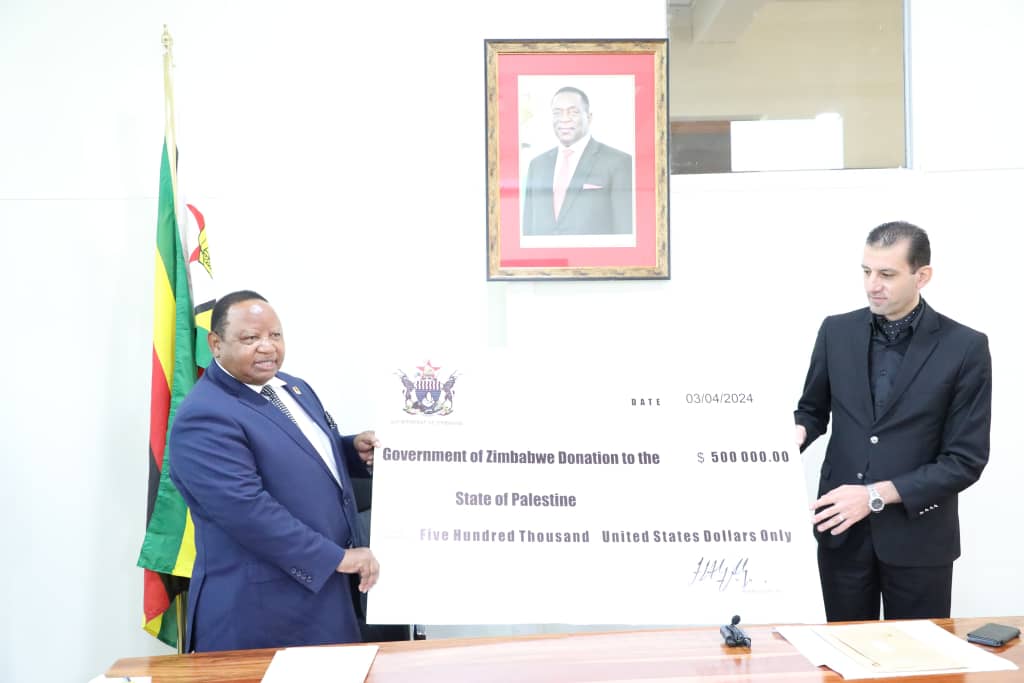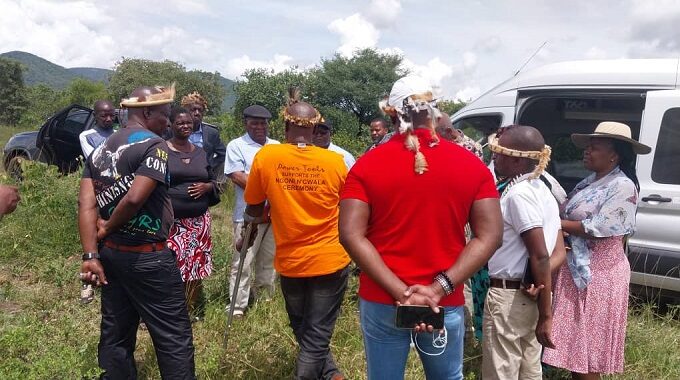
Last week, Zimbabwe’s main opposition party the Movement for Democratic Change (MDC), celebrated its 17th anniversary. For nearly two decades, the party has pressured the government of President Robert Mugabe and his ruling ZANU-PF party to democratize. It governs in many municipalities throughout the country, and served in a government of national unity from 2009-20013. During that time, it helped create a new more democratic constitution that has still not been fully implemented by the ZANU-PF controlled parliament. Brian Raftopoulos is a senior fellow at the Center for Humanities Research at the University of the Western Cape in Cape Town, South Africa. He says the MDC has built a large opposition party from a number of disparate social forces and has even beaten the ruling ZANU-PF party in elections. To win power in 2018, Raftopoulos says the MDC needs to create a united opposition with other opponents of the ruling party, and must help ensure transparency in the electoral processes, voters’ rolls, the counting of votes, the opening up of the media, and the reduction of political violence. Reporter William Eagle asked him about some of the successes and failures of the MDC over the years.
Q: What has MDC accomplished?
A: The major achievement was to build a massive opposition party out of a conglomeration of social forces and to not only challenge ZANU PF but actually beat it in elections – but be denied victory through the violence of the state. This was a huge achievement for the MDC to beat a sitting liberation movement as it did especially in 2008, but arguably in 2002, this was a huge achievement and one that should not be underestimated.
Q: What have been some of its failures, or missed opportunities?
A: Well, I think one of the mistakes made were the divisions within the MDC. The divisions in 2005 led to the first split but particularly the lack of a consensus before the 2008 election when coming together as two MDC they would have gained an even larger victory than they did that year, and almost certainly would have made it more difficult for the Mugabe regime to steal that election the way they did. Another one is once they went into the government of national unity they didn’t spend as much time consolidating the party structures, preparing the electorate in terms of registration, and the electoral processes for the 2013 election, and they became somewhat complacent when they became part of the state and while part of government
Q: Some say the MDC missed the opportunity to win in 2013 because they were too policy-orientated and failed to (articulate) their successes to voters.
A: No, I don’t think that was the main reason; certainly, they could have done more to sell their message, though the state and ruling party remained in control of the main public media and therefore was responsible for putting up the main media messages. The real loss (was because) ZANU-PF kept control of the key apparatus of the state , the means of coercion, the electoral process, but also they did more work in preparation for the election than the MDC. I think it was a combination of factors.
Q: Some say as well that they failed to reform the security forces.
A: I don’t think they had much opportunity or were in a position to do that. I think from the time the Global Political Agreement (GPA) was signed, ZANU-PF with the complicity of the SADC facilitator ensured that the security sector reform issue was not seriously on the agenda. And ZANU-PF was determined that that would not be part of the process. And I don’t think the MDC had much leverage to change that.
(Q) They did however help negotiate a new constitution. Some complain that the ruling party government has not lived up to the spirit of it and that a lot of the old laws in the book have not been made to cohere to the new constitution.
A: The making of the new constitution was an important event. It’s something the MDC and civic groups were fighting for from 1998-1999. The problem is that the ruling party ZANU PF has selectively aligned the laws with that constitution. And they will continue to do so. They have been very weak on constitutionalism historically, the ruling party. So, we have the new constitution with a great deal of potential but ZANU-PF has deliberately, selectively applied alignment of the laws with the constitution because they don’t want to put in place laws that will weaken their position.
(Q) Who is in charge of making sure that the laws align with the new constitution? Is there a mechanism in place, or office charged with that task?
A: There’s the ministry of justice and parliament which is supposed to push for that alignment and ZANU-PF has a majority in the parliament right now. Effectively, the presidency whose central position has been consolidated in the new constitution. The presidency remains in charge of the pace and the manner in which the alignment of laws takes place. That’s why Mugabe’s central role as president remains such an obstacle and impediment
(Q): Has the MDC helped build a foundation for the global opposition that could help the country evolve perhaps either into a two-party system, or into a coalition of parties that could alternate power with the ZANU-PF?
A: I think they’ve set a good foundation for building future opposition coalitions and you can see that now. There are negotiations and discussions between various opposition forces. And the fact that the MDC has remained a force however weakened at this stage for the past 17 years has been an important part of the foundational nature of that process and should not be underestimated. But what needs to be done is to ensure that before the next election there is much stronger coalition of forces and that they push for the kind of electoral reforms for which there will be no change of government.
(Q) Going into the 2018 elections, what types of changes does the MDC need to make?
(A) It needs to enter into a coalition with all the MDC formations. It needs to have some kind of electoral strategic agreement with Joyce Majuru’s Zimbabwe People’s First party and it needs to ensure that the electoral processes, especially around the voters’ rolls, the counting of votes, the opening up of the media, the reduction of violence … all these areas are dealt with beforehand. Without that, we are going to have a repeat of other elections where ZANU PF will come into power. So, I think these opposition forces should not go into an election unless there are clear electoral reforms
(Q) Is there still confidence in Morgan Tsvangirai as the leader of the MDC or as the strongest party in this coalition of opposition forces?
A: I think it’s clear that Morgan Tsvangirai remains a key figure in the opposition and his party still retains majority support within the opposition and that his role will continue to be important. And that whatever discussions and negotiations take place going forward, Tsvangirai himself will be an important part of that process.
Q: What can opposition parties across Africa learn from the MDC, especially those battling a one-party system or a one-man dictatorship?
A: Well, we learn that certain kinds of elections have limited feasibility and viability and even if you win these elections, these authoritarian states will refuse to give up state power and will find ways to deny the rightful winner of elections the right to that state power.
Q: Is there a way to battle that or just hope that overtime the system evolves (in a more democratic direction)?
A: All they can do is continue to organize themselves more strongly, combine their forces, ensure that regional and continental organizations are fully aware of the problems involved in the election processes … develop a strategy where international forces can play some kind of constructive role. But the heart of that is that the opposition must be much better organized and must be much more cohesive both organizationally and strategically.-VOA







1 Comment